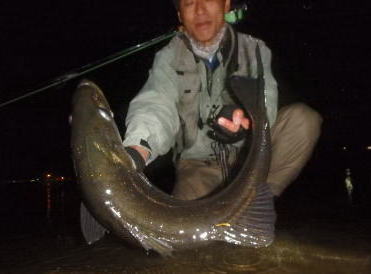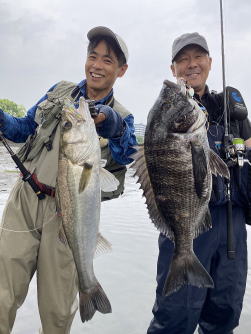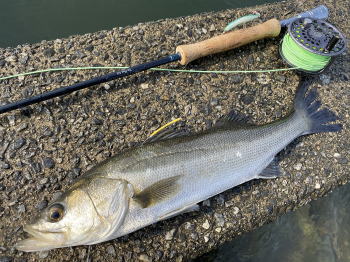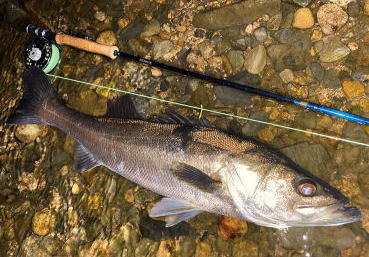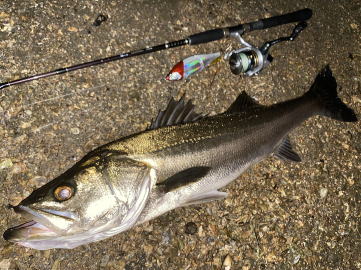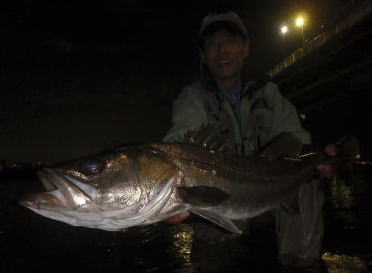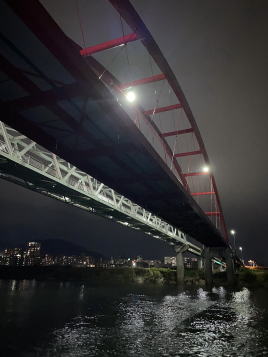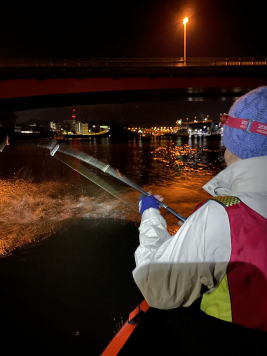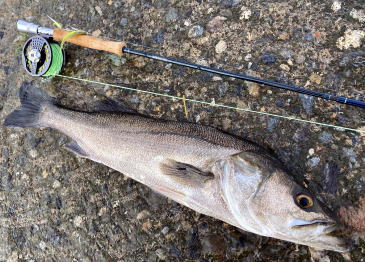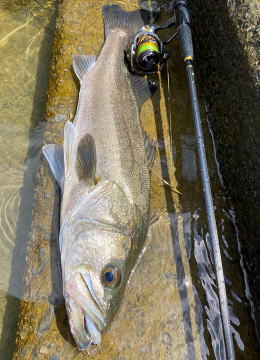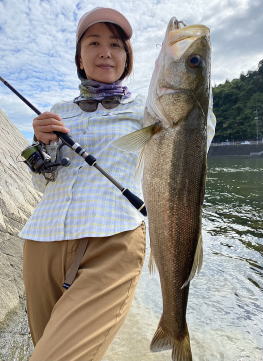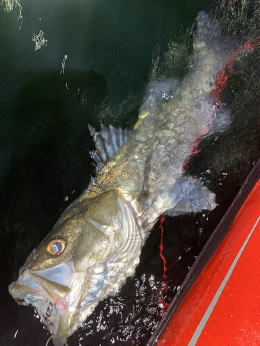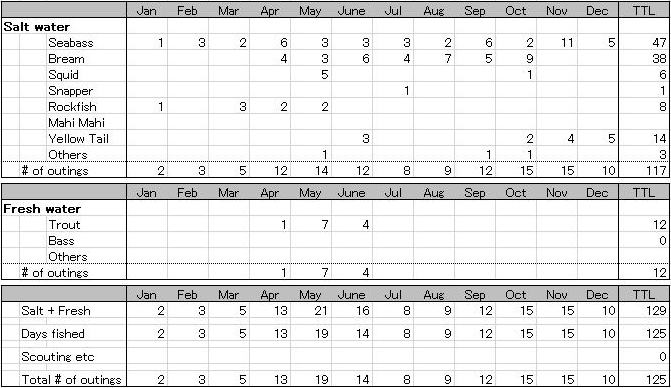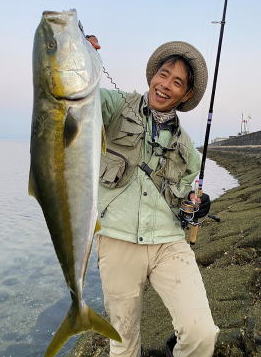Not that big fish were totally absent. They were there, surely some. But
those are aged, wary fish.
Their hunting instinct stirs up only when their favourite bait, Konoshiro,
come down past their ambushing point. Such chances were numerous in the
past, but much rarer past 2 seasons.
I made extensive research, all the way to the upper reach of the river
(to the upper most point of the tidal influence). But I could not locate
reliable number of Konoshiro anywhere, nor that of spawned out Ayu.
The best fishing occurs shortly after the flood hits the peak and the water
starts to recede. Angler must time his visit no matter what!
That I did. And was duly rewarded with a solid 80cm lunker on a top water
pencil plug.
June, the rivers and the canals nearby teemed with life, most noticeably
of baby mullets.
Due to the sheer number of real baits, fish can be difficult to fool but
it's a fun game whether catching or not catching.
So we had to rely on the (more reliable) lure fishing in the bigger, deeper
waters.
We caught numerous good fish in the 70cm class, but the trophies in the
80cm league were rare, due again to the poorer rain fall I presume.
47 seabass outings in 2021, resulted in 61 catch.
The catch rate is not bad but the share of good fish above 70cm mark was
only 21%, much worse than the past years, when 30+% was the norm.
Well, my quest of the dream fish, and the laborious field research, shall
continue in 2022.
- Bream games
Some fine fish on a fly tackle too.
They did not show up well this year. No, almost none. Their favourite bait,
Baby Ayu, were plentiful like any other year so were the water birds. The
table was set but the guests did not arrive.
Numerous trips I made, resulted in just a few juvenile fish half the size
I expect.
October normally is the months when Ayu pattern fishing reaches apex. But
alas, the rivers suffered from extreme low water due to the total absence
of typhoon (just when we needed them!!)
I managed a few captures aided by night, capturing the good moment is another
matter though.
Seno river, only 5minutes from home produced some good fish this year.
Nearness is a value in itself, particularly for the night shift anglers.
A cold chill run thru my spine as I almost stepped on Mamushi, a deadly
poisonous snake not expected in such built up locations.
Once the flood is over, bait fish from the sea swim up into the rivers
feasting on planktons. Seabass often follow them for a chance meal, which
in turn any good angler must take advantage of.
We were hit by many typhoons again this year, which made bream fishing impossible, but kept seabass active even at the height of the summer.
Pls. place the pointer on the pic and see here under the normal water condition.
The first solid fish of the year - a 75cm powerful fish coaxed out of the
monsoon flood.
On seabass games
Seabass are plentiful in our urban waterways and, unlike Breams, can be
fished at night, in bad weather, in cool seasons too.
Early season fishing in April - May produced many trophy captures in the
previous year but. . .
The year's outing totalled 129 - up some 30% YOY. Discovery of nearby Bream
fields was one of the key reason of the increase, as well as my (renewed)
interest in elusive Satsukimasu trout in Ohta river. It was unfortunate
we had to cancel our annual Mahi Mahi trip in summer due to their mysterious
absence. Kayak fishing in autumn was neither as successful as in the previous
year - not sure why but I can happily lay blame on the global warming.
The second season to live under the limitation of COVID.
We could not travel far, not to speak of abroad. That made us focus on
our own waters nearby, yielding a share of success - after good amount
of futile toils of course.
 '21 Journal
'21 Journal